14 Business Visas for Global Entrepreneurs: The Ultimate Guide
February 28, 2025
Taking your business offshore isn’t just about growing – it’s a smart, legal way to reduce your tax burden.
Many countries actively encourage foreign entrepreneurs by offering a second residency in exchange for setting up a business inside their borders.
For entrepreneurs who can see beyond the borders of their home country, receiving residency in return for simply starting a company in a more business-friendly country is the ultimate win-win situation.
Some nations require you to hire a specific number of locals, invest in only certain industries, or put a minimum amount of capital into a local business bank account.
There are many options, so it’s a good idea to get a feel for what’s available before settling on a country.
Whatever your needs and preferences, Nomad Capitalist has the world’s largest database of up-to-date information on tax, residence and citizenship, banking and corporate structures in over 100 countries.
Getting the right advice from the start can save you lots of time, effort and money. Rather than relying on local providers, it pays to have impartial advice from international experts with no specific allegiance to any one jurisdiction.
That’s just one of the reasons people choose Nomad Capitalist – we have direct experience across multiple jurisdictions and will help you weigh the pros and cons of each.
So, remove all the guesswork, skip past the gatekeepers and speed up the entire process by reaching out and letting us help you go where you’re treated best’.
1. Belgium Business Visa

At the heart of the European Union sits Belgium, a country renowned for its strong business acumen that is becoming an attractive destination for foreign entrepreneurs.
If you want to start a business in Belgium and you’re an EU, EEA or Swiss citizen, there’s no requirement for you to get a visa.
For everyone else, the process will usually involve applying for a ‘D Visa’ to secure a long-term stay in Belgium, then a ‘Professional Card’ to obtain the rights to launch a business there.
Since February 2022, all applications for a ‘Professional Card’ have to be made using the online portal. You’ll have to submit various details about your business, and it can take up to 120 days to get a verdict on your application.
The entity handling your application depends on whether you’re planning to launch your business in the Flemish, Walloon or Brussels-Capital region of Belgium.
There are several scenarios which would exempt you from having to apply for a Professional Card, including being married to a Belgian citizen or working in specific fields, so it’s worth checking the list of exemptions before applying.
You’ll pay an application fee of €140 and an additional €90 for each year for which the card is valid.
However, you should be aware that Belgium’s business visa is only an option if you genuinely want to set up and run a company there.
In other words, putting a couple of hundred euros in a bank account there and forgetting all about it won’t cut it.
The expectation is to establish a legitimate Belgian company with a comprehensive business plan. Your business plan will also need to undergo a stringent approval process.
It’s not easy, and foreign investors get rejected all the time. That’s because this is a highly desirable EU country, and they can afford to get picky about the people they let in.
And with a real Belgian company comes real taxes. The corporate tax rate is 25%, and if you want residence (along with all the perks that it offers), be prepared to pay.
So, given its tax rates, how is Belgium a smart financial move?
For starters, the business you would run in Belgium doesn’t need to be your main or primary business.
You can structure your corporation in a way that you would only pay tax on your Belgian income but not your global earnings.
Keep in mind, however, that if you want to continue living in Belgium, your business will need to turn a profit – this is a condition that your annual residency renewal depends upon.
Additional benefits of Belgian residency or citizenship include dual citizenship and a minimal in-country residency requirement of a few months per year, provided some time is spent elsewhere in Europe.
The quality of life in Belgium is very high, and the country has a welcoming attitude towards other nationalities.
Brussels is an international city and is at the heart of European business. Universities in Belgium are very internationally oriented, and students can even follow courses in English.
All of this makes Belgium a prime location for anyone looking for a great place to live and do business in Europe. You can read more about Belgian residence and citizenship here.
2. Colombia Business Visa
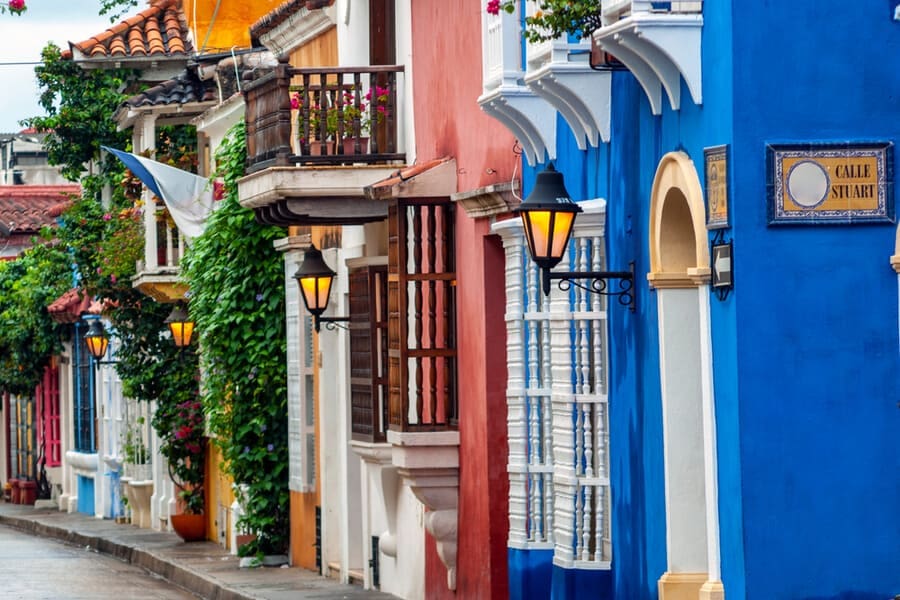
One place you may have never even considered is Colombia. But it should be on your radar because it boasts one of the strongest markets and most vibrant cultures in South America today.
Anyone looking to start a business can get the added benefit of a second residency in Colombia with less than US$35,000 in capital, which you can spend immediately on your company.
You’ll have to invest 100 times the Colombian monthly minimum wage, which is 1,423,500 Colombian pesos (currently around US$34,716).
The Colombia Business Visa is a temporary residence visa with a light physical residency requirement of having to visit the country at least once every six months.
Additionally, if you meet the physical residency condition and a basic Spanish and Colombian history knowledge requirement, the timeline to naturalisation is five years.
The Colombian passport is much better than it used to be and will grant you access to 138 countries either without a visa, through a visa on arrival or via electronic travel authorisation.
Besides having unlimited access to all of Central and South America, a Colombian passport will allow you easy access to all of the countries in Europe’s Schengen Area, as well as traditionally difficult countries like Russia.
Even better, Colombia also allows dual citizenship, meaning you will not have to renounce your current citizenship to become a citizen.
What makes Colombia really stand out as a destination for entrepreneurs, however, is its business culture. Colombia’s consistent economic stability over the past few years has been noticed by foreign investors and expats worldwide.
The country was named one of seven emerging markets worth investing in by Fortune Magazine, and the World Bank has ranked it as one of the best economies in Latin America based on the short amount of time it takes to start a business there.
The start-up scene in Colombia has been moving forward at an impressive pace, thanks in part to the large number of engineering and computer science graduates and postgraduates in the country, which affords entrepreneurs access to the second-largest skilled labour workforce in Latin America.
This growing technology ecosystem is further benefitted by Colombia’s incentives, making Colombia a major competitor for offshore operations.
No wonder things are going so well for Colombia. You can learn more about Colombia’s residence and business visa program here.
3. Panama Business Visa
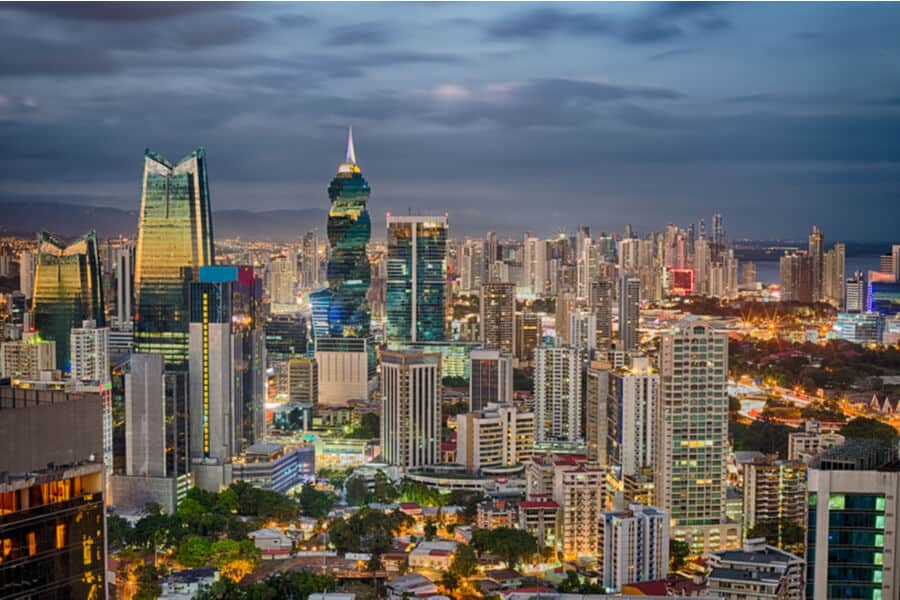
Panama also has a brilliant Business Investor Visa, which unlocks a world of business and tax-saving opportunities.
Here are the requirements:
- An initial investment of at least US$160,000 is required, which can either be placed into an existing Panamanian company or used to establish a new one.
- Your new venture should create at least five full-time jobs for Panamanians.
- This visa is renewable after two years, which is when you can request permanent residence.
Within five years of permanent residence, you can apply for naturalisation. You’ll need to have Spanish language skills and knowledge of Panamanian history, and you will need to attend an interview.
Aside from having one of the easiest pathways to citizenship for entrepreneurs in the Americas, it also offers you many of the same benefits that Colombia boasts.
See our full guide to Panama residency and citizenship.
4. Portugal Business Visa

Many people don’t know, but Portugal has an excellent visa program aimed at non-EU entrepreneurs looking to set up or invest in a business in the country.
Portugal’s D2 Visa, also known as the Immigrant Entrepreneur Visa, offers non-EU/EEA/Swiss entrepreneurs, investors and self-employed professionals a chance to start a business in Portugal.
It also allows them to relocate their business or invest in an existing business in Portugal.
A D2 visa holder is granted a two-year temporary residence permit, which can be renewed for another three years. After five years of legal residency, you may apply for permanent residence or citizenship.
No official minimum investment threshold exists for the D2 visa, although it’s suggested that small or medium-sized companies have between €3,000 and €5,000 to get approved.
Moreover, there are no conditions regarding job creation or yearly profitability, making the D2 a flexible option for entrepreneurs looking to establish an EU corporate base.
Nonetheless, depending on your business or investment plan, you’ll need to demonstrate adequate financial proof that your investment or business is viable and offers social, cultural or economic benefits to the country’s economy.
Applicants must also prove they have the financial means to live in Portugal for a year, regardless of their business structure or income.
They can do so by showing a bank statement with a balance of at least €10,440. This threshold is based on the minimum wage set by the Portuguese government, which is €870 per month (or €10,440 per year) for 2025.
5. Hungary Business Visa
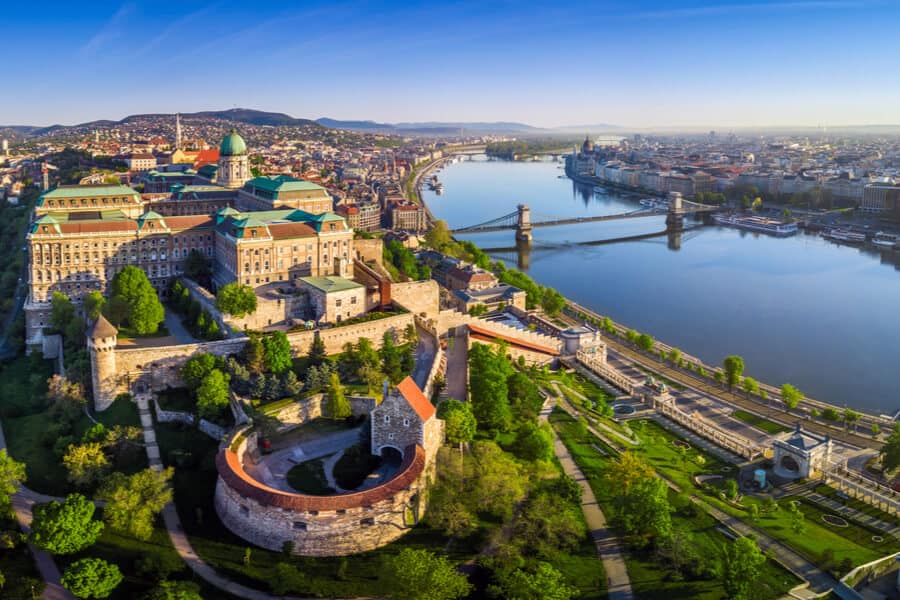
Hungary is a country in the European Union that’s extremely welcoming to foreign investment, especially when it comes to setting up new businesses.
With a highly educated workforce and proficient English speakers, Hungary is best suited to business owners who are looking to set up manufacturing and similar enterprises.
With a central location in a rapidly emerging area of Europe, the Hungarian business visa becomes even more appealing.
Here are the key points of the program:
- Non-EU citizens can obtain Hungarian residency by establishing a local company
- The minimum amount required for initial business capitalisation is €50,000
- You’ll need to provide proof that you’ve legitimately obtained all of the funds necessary for the investment.
- You’ll also need to prove that you have a clean criminal record and an outstanding international reputation.
You’ll initially be granted temporary residence for one year, which can be extended for another two years. Subsequently, you’ll be granted permanent residence for three years, provided you maintain the business investment.
Furthermore, turning a profit can help you offset the mandatory social security contributions and the other taxes that you’d be liable to pay on your business in Hungary.
Another benefit of setting up a company here is the relatively low corporate tax rate (currently 9%).
So, what are some of the other benefits of Hungarian residence? For starters, being a resident in this country will enable you to invest in any EU country freely, open up EU bank accounts and purchase real estate.
Furthermore, you can apply for citizenship once you’ve been a resident for a period of eight years. That doesn’t guarantee you’ll get it, but if you do get approved, you’ll get your hands on a highly valuable European passport.
So, what are you waiting for? Huge numbers of expats have already uncovered Hungary – and Budapest specifically – as a great place to live.
An alternative to setting up a business in Hungary is obtaining Hungarian citizenship by descent. Of course, this only applies if you have actual Hungarian ancestry.
6. Turkey Citizenship by Investment

As part of its Citizenship by Investment (CBI) program, Turkey offers six main options for foreign investors, including investing in local real estate and starting a business in Turkey.
While the vast majority go for the real estate option (and there are definitely great property deals to be had), the entrepreneurship route could be interesting to aspiring business owners.
The main purpose of this program is to create local jobs.
It doesn’t matter if you want to move a part of your already existing business to Turkey or set up a brand new operation. Either way, you’ll need to meet this program’s requirements:
- Create at least 50 jobs for Turkish citizens. The monthly cost of employing one minimum salaried job is 22,104 Turkish Lira (around US$608) in 2025
- You should also consider all of the administrative costs of setting up and running a business
- Only people seriously interested in running a legitimate business for the long term should apply. This is because you’ll need to either run the business yourself or hire someone to do so for you.
- There is no predefined minimum investment sum to qualify for residence and eventual citizenship of Turkey under this program’s job creation route.
- You don’t need to reside in Turkey physically to take advantage of this entrepreneur program. Bringing your family under the same investment is entirely possible – your spouse and dependent children are free to join you in obtaining residence and a Turkish passport.
All things considered, if your business could benefit from affordable Turkish labour, or if you need to outsource some of your current operations to a cheaper country, Turkey has what you need.
The entire process of getting Turkish citizenship by investing in a business takes about three to four months and is rather easy. Read more about citizenship by investment in Turkey here.
7. Lithuania Business Visa
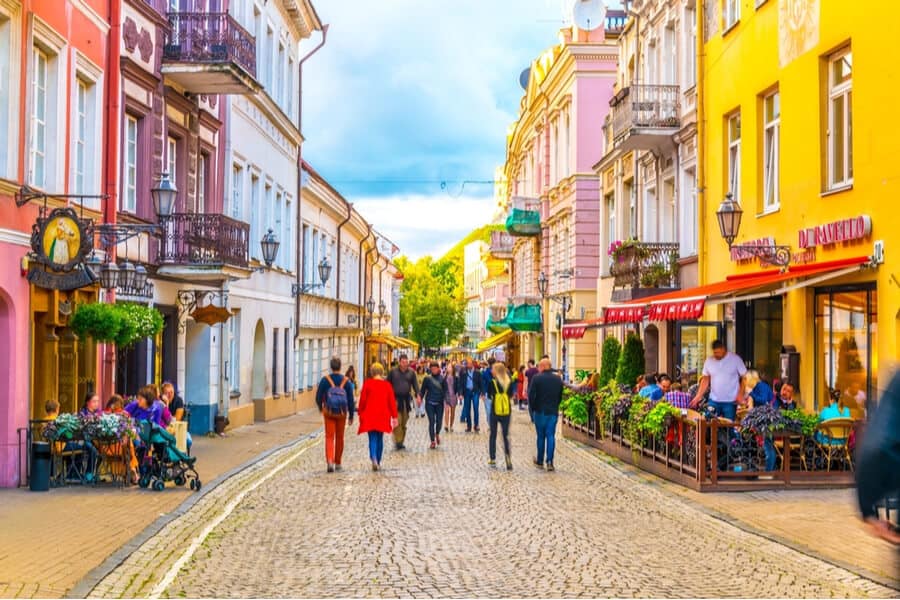
Lithuania is yet another European country where you can set up a business and get a residence permit as part of the deal.
In fact, Lithuanian residence by way of investing in a business is one of the easiest to obtain in Europe, with no excessive requirements and not that much red tape.
However, we wouldn’t recommend Lithuania for just any kind of business. If you would like to run a service-based business or something in retail, there’s not much potential in this Baltic country.
However, businesses with a regional or global focus, particularly those offering professional services, are likely to find Lithuania advantageous.
Of course, location-independent companies can also benefit from being located in Lithuania, thanks to the country’s flat 15% corporate tax, which is comparable to Ireland’s 12.5%.
Unlike neighbouring Latvia, which requires significant annual tax payments to maintain residency, Lithuania adopts a more flexible approach to tax monitoring.
As long as it’s clearly an active company and you pay some tax annually, you’ll be able to continue to enjoy the benefits that a Lithuanian residence offers.
Interested? You’ll be glad to know that the process is actually very simple:
- The company must have at least €28,000 in equity, you must hold at least one-third of the shares, conduct business in the country for at least six months and employ a minimum of three EU citizens or permanent Lithuanian residents with twice the average Lithuanian salary.
- Applicants must demonstrate a connection to Lithuania, either through residency or other means, such as a lease agreement. While physical presence is often preferred, authorities are quite flexible about this requirement.
Citizenship is available to those who have resided in Lithuania for a minimum of 10 years.
However, you should keep in mind that the country doesn’t allow dual citizenship in most cases. Read more about starting a business in Lithuania here.
8. Latvia Golden Visa
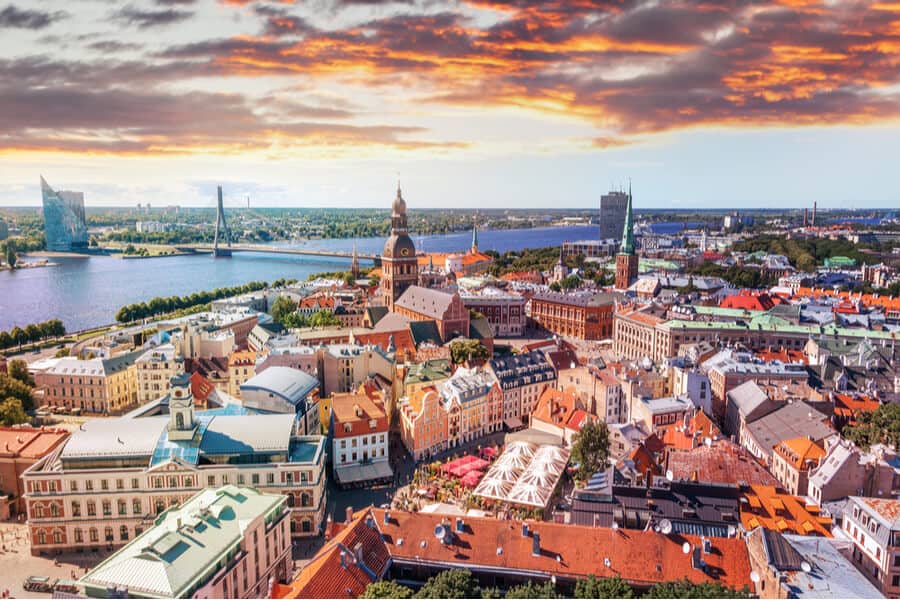
Latvia is another Baltic country that has an interesting proposition for entrepreneurs in search of European residency.
So, what’s the main appeal of Latvia? Here are the highlights:
- The application process is efficient, with residency typically granted within 2-3 months.
- It’s one of the cheapest ways for business investors to gain European residence. You’ll only need to invest €50,000 if the company’s turnover is less than €10 million a year. The investment will need to be doubled if the company earns more than that.
- You’ve got choices. You can either create your own company or invest in an already existing Latvian company and become a shareholder.
Beyond these key points, there are a few quirks.
The main catch is that if you form a company, you must pay at least €40,000 in tax per year to retain your residence.
If you do the math, the total investment for a period of five years renders Latvia no longer a ‘cheap’ proposition.
Still, lots of investors choose to go down the business investment route in Latvia. Most opt in because a €50,000 investment to bring your entire family to Europe is a reasonable price to pay.
And, if you’re running a legitimate business with a decent turnover, the €40,000 should be manageable. Read more about starting a business in Latvia here.
9. Singapore EntrePass Visa

Singapore is very strict about who it grants residency to. With a surplus of investors, expats, and international professionals, it has little incentive to open its doors to just anyone.
However, for many foreign entrepreneurs, the lure of Singapore is simply too strong to resist. Luscious food, a multicultural environment and a central Asian location are the main benefits of setting up shop in this Asian nation.
Plus, it’s one of the best residences (and eventual citizenships) to have in the world. In addition to an exceptionally strong passport, it also has territorial taxation, which means that you can structure your global assets in ways that benefit you directly.
However, all this comes with one big caveat: Singapore does not allow dual citizenship.
So, what does an entrepreneur do to gain permanent residence in Singapore?
We won’t lie and tell you the process is quick or cheap – quite the contrary.
You used to be able to open up an ice cream shop, employ a few locals, claim your permanent residence and call it a day – but not anymore.
The requirements are much more stringent for each of the three routes into the country.
First, you’ve got the Singaporean entrepreneurship visa called the EntrePass. Here are the main eligibility criteria:
- People of any nationality can apply
- The program is geared towards serial entrepreneurs, high-calibre innovators and experienced investors only. No beginners will be accepted.
- You must either already have a new company (less than six months since incorporation) or intend to set one up after you’re approved for the EntrePass.
- It will take approximately two months to process your application.
Although there is no minimum sum you must have to start your Singapore company, there is a checklist of criteria. The more of these you tick off, the higher your chances of getting approved:
- You have secured at least US$100,000 in funding from a government-recognised venture capitalist (VC) or angel investor.
- You’re part of a government-approved incubator or accelerator.
- You have a strong business network and entrepreneurial track record
- You hold intellectual property that delivers a significant competitive advantage to your business
- You have a research collaboration with the Institute of Higher Learning or another research institute in Singapore
- You have achieved exceptional milestones in your area(s) of expertise and are able to prove it
- You have a positive track record of investing in businesses.
If you get approved, you’ll need to jump through a considerable number of hoops to renew your residence annually, including meeting an annual spending sum figure and employing a minimum number of people.
Don’t fancy having to do all that? Then, your second option to gain entry to Singapore is the Employment Pass.
While this program is mostly geared towards skilled workers, you can set up a company and hire yourself as the director.
Keep in mind that:
- It’s not cheap to run Singaporean companies. Local directors must be hired, and an annual audit must be conducted.
- Singapore is no tax haven. All businesses pay 17% tax on their worldwide income. You’ll be expected to show a business profit, which will also be taxed.
- You’ll be required to pay your employees a reasonable wage as determined by the scheme.
Finally, there is another relatively new program that can lead to residence in Singapore called TechPass. It’s very similar to EntrePass but is geared toward leaders and innovators within the tech industry.
Read more about setting up a business in Singapore here.
10. South Korea D-8 Investor Visa

South Korea is a country that is heating up. In fact, it’s probably the hottest country on the Asian continent.
Its music, food and culture, in general, have exploded onto the global stage in recent years. It’s no surprise that investors are increasingly seeking ways to get a slice of Korea’s economic success.
Luckily, there is an opportunity for foreigners to get permanent residency in South Korea if they’re looking to invest in a local business.
However, it’s not as easy as it was just a decade ago.
Now, as the number of expats in South Korea tops one million, residence permits are much harder to come by.
The visa in the spotlight is the D-8 Investor Visa, which requires a minimum investment of approximately KRW 100,000,000 (US$69,412). It must also be a profit-generating company for your residence permit to be extended.
The South Korean program is somewhat of a hybrid visa as it combines investment and entrepreneurship.
This means that your business doesn’t need to be as innovative as it would for a Singapore business visa. You could even open up a restaurant or some sort of a lifestyle business and thrive in South Korea.
Meanwhile, if you have an earth-shattering start-up idea that you think could conquer the world, we recommend taking it elsewhere.
Since many countries are wrestling for people to bring these ideas to them, you need to play your cards right.
Read more about investing in business in South Korea here.
11. North Macedonia Entrepreneur Visa

The North Macedonian entrepreneur visa program is so under the radar that government bureaucrats don’t even have a set procedure for it.
That often makes for the best investment opportunities – ones that haven’t already been seized upon by thousands of investors from around the world.
Despite its visa program being quite unknown, the country itself has been gaining traction over the last decade. It’s a beautiful country on the Balkan peninsula, dotted by mountains and the pristine waters of Lake Ohrid.
But don’t forget the business investment aspect of this. While North Macedonia is a slightly more obscure country on this list, and you would assume that it would give you some concessions, it does expect you to run a legitimate business.
You will need to put at least €400,000 into a local business bank account. Furthermore, you’ll need to hire ten local people full-time.
All that said, if you’re genuinely interested in taking advantage of the many opportunities that this emerging country offers, it is among the most business-friendly countries in Eastern Europe.
To sweeten the deal even more, its tax regime is also highly favourable, with a flat 10% corporate tax.
Read more about operating a business in North Macedonia here.
12. Bulgaria Business Visa
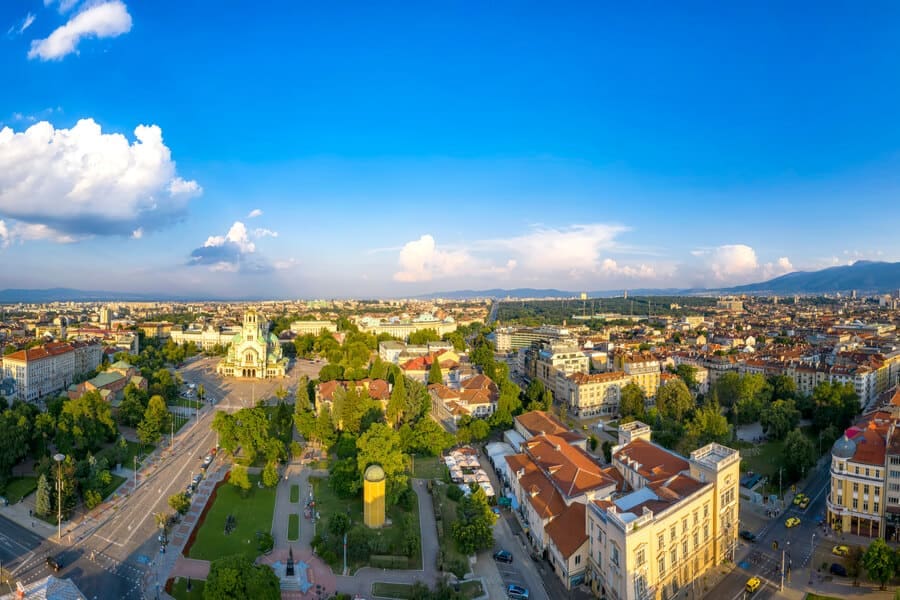
Did you know that Bulgaria is a member of the European Union and the Schengen Area? Or that Bulgarian residence means you’re free to travel all over the continent with just an ID card?
It may come as a surprise, but these benefits are just the tip of the iceberg for foreign entrepreneurs.
If you’re eager to unlock Europe and are willing to give Eastern Europe a chance, Bulgaria is as good a place as any.
Sitting at the confluence of the west and east, the new and the old (ex-Soviet), Bulgaria is a really interesting proposition for foreign investors seeking to reap the benefits of its EU status, affordable labour, and geographic location, among others.
You can gain a residence permit by launching a Bulgarian limited company and employing ten local citizens, establishing a trade representative office or investing BGN 6,000,000 (around US$3.2 million) into an existing Bulgarian company that isn’t publicly trading.
Bulgaria is great for those who want to outsource all or part of their labour overseas.
That’s because the Bulgarian workforce is highly educated and can speak fluent English. The average wage in the capital of Sofia is about a thousand euros per month.
This country should be of particular interest to those in the tech industry. Tech has been booming in Bulgaria, and there are plenty of highly qualified specialists for hire.
13. Romania Business Visa

Similar to neighbouring Bulgaria, Romania offers a strong business proposition.
You can get residence and perhaps even a second passport by incorporating a business in Romania, but as we know, many European countries offer this.
So, what’s special about Romania in particular?
It’s a quick and relatively cheap way to obtain permanent European residence. You will need to invest a minimum of €150,000 into your company and hire some employees to get going.
When it comes to taxes, Romanian corporations pay a profit tax on their worldwide income – a flat 16%. And while that’s quite a low percentage, it’s certainly not as low as some of the other jurisdictions in Europe.
The important takeaway for running a tax-optimised business is to use a ‘micro company’ – this isn’t exactly easy for non-residents to pull off, so we recommend having professional guidance along the way. If you succeed, you can benefit from corporate tax rates as low as 1%. There is also a dividend tax of 8% that needs to be paid, but it’s a far cry from what Western Europeans are paying.
Read more about opening a business in Romania here.
14. Puerto Rico Act 60
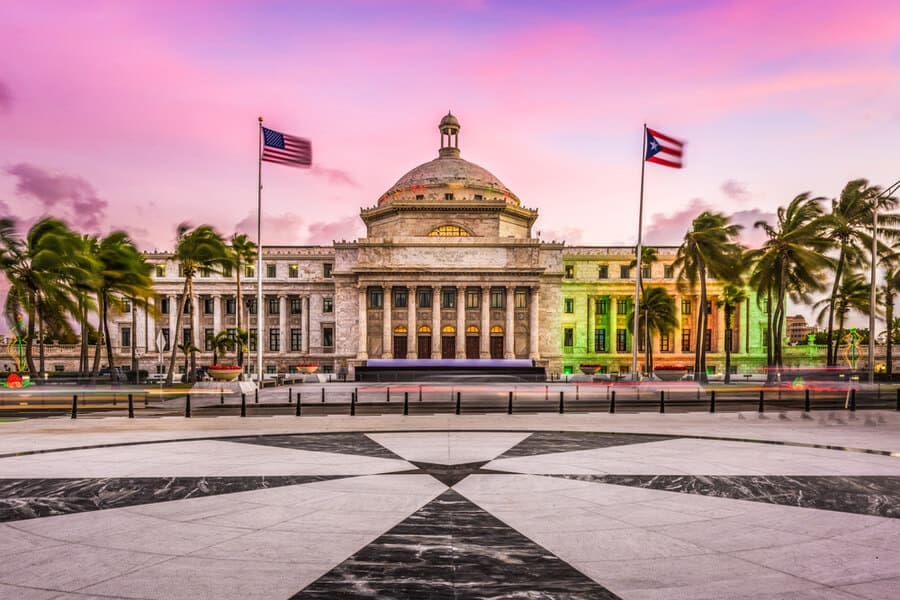
Long lauded as the ultimate alternative to citizenship renunciation for Americans who are tired of inflated tax rates, Puerto Rico has many business investment opportunities.
But tread carefully because it’s not the right option for all.
It’s not a ‘one-size-fits-all’ solution and going to Puerto Rico for residence when you want to do business comes with strings attached.
Additionally, it’s really not the best location for top-level living.
Scrambling to raise capital, Puerto Rico has done what a lot of other governments have had to do – launch an investment program in exchange for tax incentives and residence status.
Its main goal is to attract US corporations that are looking to legally optimise their taxes. And because Puerto Rico has a special status with the US, companies are able to cut their taxes by as much as 90%.
Your company will most likely need to have a physical office on the island, apply for all the tax concessions and go through the bureaucratic motions.
But, for many, it’s still worth it.
In terms of hiring, many Puerto Ricans speak English, and the island is just a quick plane ride away from many American cities.
Also, you don’t have to renounce your American citizenship to take advantage of the various tax incentives.
On the other hand, the physical presence requirement for yourself (and your family) puts many people off picturesque Puerto Rico.
Could you see yourself spending half of your year there? If not, then Puerto Rico may not be for you. If so, then read more about Puerto Rico’s tax incentives here.
Easy Business Visa Countries: FAQs
Countries like Belgium, Portugal, Singapore and Colombia offer some of the best business visas, often granting residency or even citizenship in exchange for investment and business operations.
Entrepreneur visas allow you to start or invest in a business in a foreign country, often leading to residency or citizenship if you meet certain conditions, such as creating jobs or hitting certain investment thresholds.
Yes, various European countries, including Belgium, Portugal, Hungary and Lithuania, offer entrepreneur visas that allow you to start a business and gain residency or citizenship.
We rate South Korea and Singapore among the best entrepreneur visa countries in Asia.
Many countries offer entrepreneur visas, giving you access to new markets around the world.
Some popular global entrepreneur visa options include programs in countries like Singapore, Panama, South Korea and Turkey that offer visas in return for business investment and job creation.
Get Your Business Visa Plan B While You Can
From golden visas to business visas to CBI programs, countries are shutting down immigrant investor programs at record speed.
That’s why it’s imperative to act now and secure a Plan B to expand your business and passport portfolio.
Whether you want to live and work in Asia, the EU, the Caribbean or some other region, Nomad Capitalist can help you.
We have the world’s largest database of actionable information on tax, residency, citizenship and corporate structures in over 100 countries.
From billionaires and celebrities to everyday entrepreneurs, we’ve helped 2,000+ successful clients grow their wealth and increase their peace of mind.
Sounds interesting? Set up a call with us today to discover how we can help you go where you’re treated best.



Why Dual Citizenship Is The New American Dream
The American dream that once fueled immigration is dying. Many Americans now believe that other countries can offer them better opportunities. A lack of freedom, affordable housing and economic challenges have sparked a growing interest in US dual citizenship. This trend in dual citizenship extends beyond the United States, as individuals around the world seek […]
Read more

Visa-Free Countries for US Visa and Green Card Holders
For high-net-worth entrepreneurs, global mobility is more than a luxury; it’s a necessity. As a US visa or Green Card holder, you enjoy the privilege of being able to travel to numerous countries without the hassle of securing additional visas. Imagine the convenience: jetting off for business deals, scouting new investment opportunities, or sneaking in […]
Read more

10 Easiest Countries to Immigrate to: Passports for Investors and Professionals
The freedoms we enjoy in our so-called ‘borderless’ world are being steadily dismantled. In its place, a complex web of shifting regulations and political anxieties has taken root, affecting long-term planning for global citizens. As established pathways close and new hurdles appear, the definition of an ‘easy’ country to immigrate to is subject to change. […]
Read more




